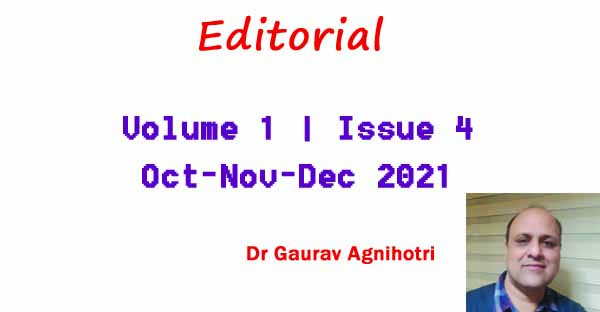“Research is formalized curiosity. It is poking and prying with a purpose”
– Zora Neale Hurston
We are in a phase when rapid change has taken place in the medical curriculum. At this critical juncture, I feel that medical students need to experience research. The recent inclusion of electives in the medical curriculum of India is a welcome step and I believe more needs to be done. Block 1 in ‘electives’ allows a medical student to work for four weeks in a basic science laboratory or under a researcher in an ongoing research project. This will not only benefit the students professionally but also has an important bearing on the patients and communities they serve.
C Wright Mills once commented that there was never a time he was not thinking, reflecting, analyzing, and writing. This implies that he was always working on an idea. This is the mindset that research can build up. This is the mindset we want in clinical medicine and health scenario where continuing critical appraisal of new evidence and engagement with new ideas is vital. The intellectually curious mind achieves a sense of personal satisfaction. Curiosity and interest also create an eagerness to engage in learning as a part of a team. It is always teamwork that paves way for research achievements. Research active health care workers seem to provide better care and achieve better patient outcomes. Given the potential benefits, it is pertinent to expose medical undergraduates and early medical graduates to research and research training.
In a medical college, the students and trainees need to be mentored by experienced researchers to get the best results. A combination of astute mentorship and guaranteed time in the medical curriculum will increase the likelihood of research outputs that are of high quality. The doctors are lifelong learners. Early exposure to research methodology, grant processing, high-impact journals under the best clinical minds will surely help in cultivating clinical researchers for the future.
We are living in an era of competition and a resume that includes research productivity and qualifications is and will continue to yield dividends. I implore all students to make the most of research opportunities in medical school and beyond not only for personal and professional benefits but also to contribute to the health of patients and the Indian community.
With the release of the fourth issue, your magazine ‘Buzz Dezire’ has completed one year of circulation. I take this opportunity to thank the bright medical minds, the superstars of tomorrow who have shared their valuable insights by contributing to the magazine. I am also privileged that the experienced teachers in renowned medical colleges have shared their experiences and thoughts on topics of student interest.
The present issue has write-ups on ‘How to attempt a question in exams?’ and ‘Studying with partners and teams’ by Dr Sabita Yograj and Dr Sahiba Kukreja respectively. Both are renowned academicians and their inputs are priceless. Dr Mouna Subbaramiah in her inimitable style has contributed a poem to encourage body donation.
I would also like to acknowledge the contribution of Dr Shirdi Prasad Tekur. His take on common sense as one of the primary responsibilities of a doctor is marvelous. Unfortunately, our community lost this prolific writer and orator recently (another doctor taken away by COVID). We at Buzz Desire dedicate the present issue to Dr Shirdi Prasad Tekur. Happy reading and let’s not forget our commitment to quality research!
(Dr Gaurav Agnihotri)
